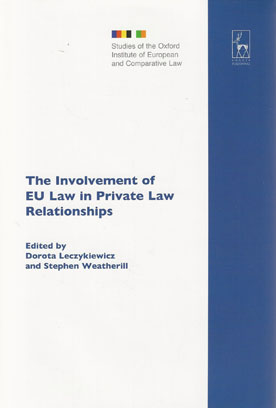
The involvement of the EU in regulating private conduct and the relationships between individuals is increasing. As a result, EU law affects the scope of private autonomy in ever wider contexts, sparking tensions with fundamental concepts of national private law systems.
This volume offers a descriptive and normative account of the involvement of EU law in private law relationships. The recurring theme in the collected papers is the scope of policy objectives which are apt to legitimise the European Union's as yet unsystematic tendency to serve as a source of restrictions of private autonomy.
The nature and purpose of the involvement of European Union law in private law relationships is investigated by the authors from both the substantive and the constitutional perspective. The papers look at such sectors regulating private law relationships as consumer law, labour law, competition law, equal treatment law and the law of remedies.
While focusing on private law relationships the authors investigate more general concepts of EU law, such as the Internal Market freedoms and general principles of law, and the different modes of ensuring the effective application of EU secondary law.